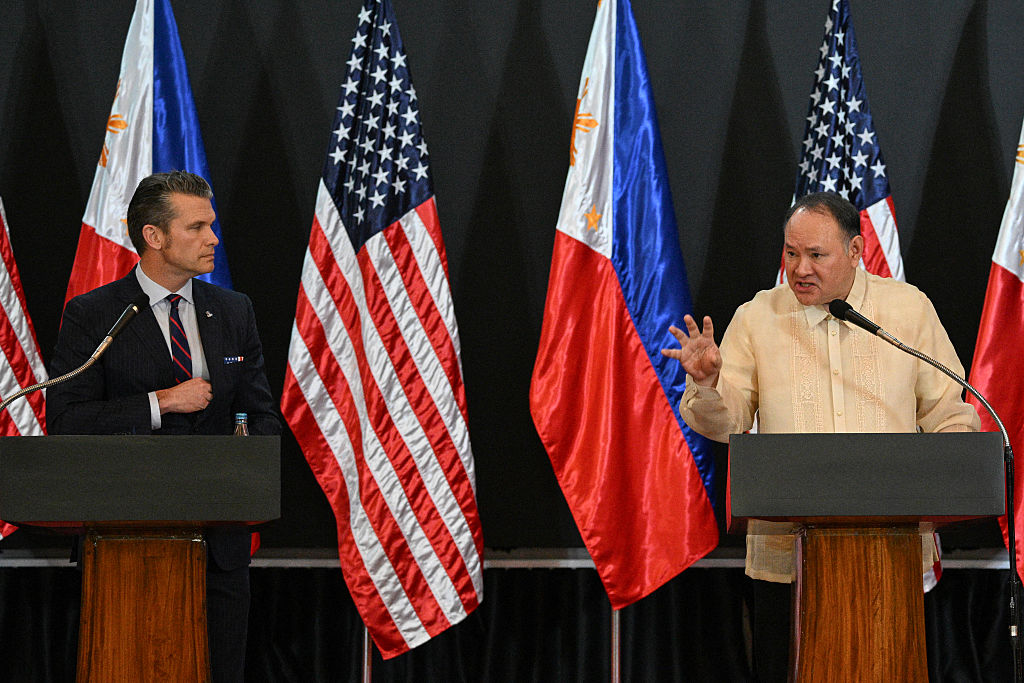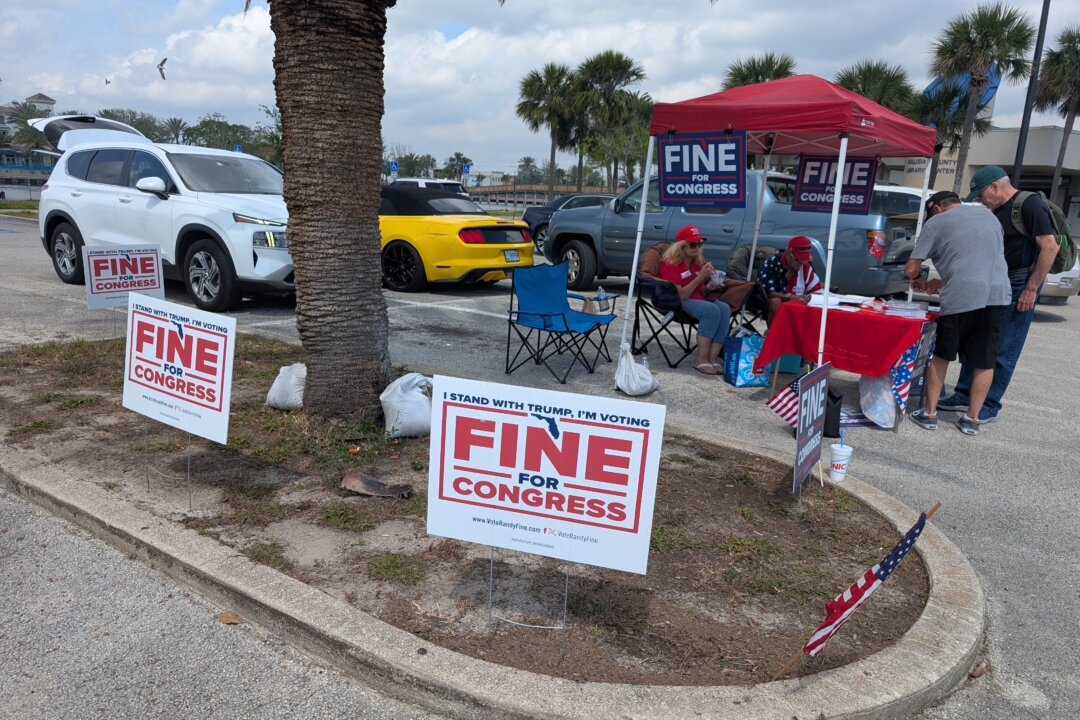‘It is hard to believe that this is what President Trump wants,’ said Robert Bork Jr., president of the Antitrust Education Project.
News Analysis
Despite sweeping into office on a deregulation platform, it is uncertain how much federal antitrust actions will change under the Trump administration from what it was under President Joe Biden.
After President Donald Trump’s election in November 2024, many analysts expected that 2025 would be a banner year for mergers and acquisitions (M&A).
A report by Voya, a financial advisory firm that tracks M&A markets, predicted in December that “antitrust leniency” from the Trump administration would “reduce barriers to large mergers and unlock lucrative M&A activity.”
But the changing of the guard thus far has not indicated an easier path for mergers. It does, however, suggest that priorities beyond the traditional consumer welfare standard will continue to drive the Federal Trade Commission’s (FTC’s) antitrust policy.
Newly appointed FTC Chair Andrew Ferguson often criticized actions taken by his predecessor, Lina Khan.
In dismissing a series of directives handed down by Khan in the final days of the Biden administration, Ferguson stated on Jan. 16 that “the Biden-Harris FTC has no future.”
But he has also indicated significant continuity of Khan’s policies under his tenure.
On Feb. 18, Ferguson told FTC staff: “Let me be clear: the FTC’s and DOJ’s joint 2023 Merger Guidelines are in effect and are the framework for this agency’s merger-review analysis.”
Robert Bork Jr., president of the Antitrust Education Project, said it remains unclear how antitrust enforcement may differ going forward.
“To the dismay of many in the antitrust community, chairman Andrew Ferguson is continuing the Biden-era joint merger guidelines developed by Biden’s Federal Trade Commission Chair Lina Khan and Justice Department Antitrust Chief Jonathan Kanter,” Bork said. “Those guidelines are designed to maximize the power of the Washington, D.C., regulator over the market. It is hard to believe that this is what President Trump wants.”
Wesley Hodges, director of the Heritage Foundation’s Tech Policy Center, noted that the FTC under Ferguson had retained all cases from his predecessor, “signaling a firm stance against big tech.”
In addition, Hodges told The Epoch Times that “instead of revoking the [merger] guidelines outright, he preserved them within a broader anti-monopoly framework—one that emphasizes preventing firms from excluding, punishing, or eliminating competitors, and applying heightened scrutiny to mergers in highly concentrated markets.”
Khan FTC Redefined Antitrust
Critics have charged that defining antitrust violations according to a company’s market share versus whether it is harming consumers risks expanding regulatory powers beyond the commission’s traditional role and potentially making its actions more ideological and capricious.
A report by the Market Institute, titled “Andrew Ferguson’s Contradictory Promises to Donald Trump,” stated that the 2023 Merger Guidelines “abandoned the consumer welfare standard in favor of a ‘big is bad’ approach that makes it easier for the government to block mergers and acquisitions, stifling economic growth and innovation.” The report called this “a troubling shift for conservatives who believe in free markets.”
The FTC has a dual role: the policing of anticompetitive activity and protecting consumers from fraud and other corporate misdeeds. Until Khan took the helm, analysts say, the consumer welfare standard had been the guiding principle of the FTC in its antitrust actions for decades.
In a 2019 keynote address, then-FTC commissioner Christine Wilson explained that “under the consumer welfare standard, business conduct and mergers are evaluated to determine whether they harm consumers in any relevant market. Generally speaking, if consumers are not harmed, the antitrust agencies do not act.”
Advocates of the consumer welfare standard also argue that consumer harm is clearly defined and measurable, creating more certainty among companies regarding what sort of behavior the government will oppose.
“Without this standard and its reliance on econometrics, antitrust law is no longer a tool to promote efficiency and competition in the service of the consumer; it is a weapon the regulator can point in any direction he or she wants, at any politically disfavored target,” Bork said. “Why the FTC is clinging to this outmoded, left-wing ideology is a mystery to me.”
In a 2022 op-ed, Fred Ashton, director of competition policy at the American Action Forum, wrote about the downsides of using antitrust policy to pursue social goals.
“Commandeering antitrust policy as a tool to solve other societal ills, including depressed employee wages and harm to competitors, risks creating uncertainty, stifling innovation, and slowing economic growth,” Ashton stated.
Big Tech a Primary Target
Under Khan’s leadership, the FTC targeted companies that had achieved what the commission perceived as an unacceptable size. It took a more aggressive stance against companies, including Alphabet (Google), Amazon, Microsoft, and Meta.
Khan also attempted to steer the FTC toward defending workers’ rights, including an effort to ban noncompete agreements for employees. Her approach received praise from many on the left but also from some on the right, including Vice President JD Vance, who praised her tough stance against tech companies.
Under Ferguson, the FTC will likely continue to target big tech, although actions may focus more on the alleged censorship conducted by social media companies.
“I expect the desire to hold Big Tech accountable for its harmful and anticompetitive practices to be the driving force of the Ferguson FTC,” Hodges said.
Following his appointment as chairman by Donald Trump, Ferguson stated on the social media platform X in December that the FTC would “end Big Tech’s vendetta against competition and free speech.”
And on Feb. 20, the FTC launched an investigation into whether technology platforms “deny or degrade users’ access to services” because of their point of view or political or religious affiliation.
“Tech firms should not be bullying their users,” Ferguson stated. “This inquiry will help the FTC better understand how these firms may have violated the law by silencing and intimidating Americans for speaking their minds.”
As an additional sign of what is to come for tech companies under the Trump administration, the DOJ antitrust division sued to block the merger of Hewlett Packard and Juniper Networks, two wireless networking firms, on Jan. 30.
Mergers Stall Despite High Hopes
Companies, and Wall Street, appear to have taken note.
Far from taking off, M&A dealmaking has slowed down significantly in the first quarter of this year. The first two months of 2025 were the weakest for M&A deals since the 2008 financial crisis, with the number of deals down nearly 20 percent from the same period in 2024.
The FTC under Ferguson also appears likely to continue Khan’s approach regarding worker protections, although with some variations such as investigations of corporate diversity policies.
In February, the FTC launched a “Joint Labor Task Force to Protect American Workers.” This task force, it said, will target “deceptive, unfair, and anticompetitive labor-market practices” that include such things as “no-poach, non-solicitation, or no-hire agreements, noncompete agreements, wage-fixing agreements … and collusion or unlawful coordination on DEI employment metrics.”
Artificial intelligence is one area where the FTC may grant more leeway.
“The Commission must not charge headlong to regulate AI,” Ferguson stated in January. “Such regulation could strangle this nascent technology in its cradle, or move the development of the technology to foreign states hostile to our national interests.
“On the other hand,” he said, “the Commission must remain a vigilant competition watchman, ensuring that Big Tech incumbents do not control AI innovators in order to blunt any potential competitive threats.”
Consumer Protection Takes Back Seat
Taking into account the commission’s limitations of personnel and bandwidth, critics have charged that Khan’s focus on big tech and workers’ rights crowded out the commission’s work in consumer protection.
Commissioner Wilson, who resigned from the FTC in 2023 in protest of Khan’s leadership, wrote in a letter to Biden that consumer protection had languished during Khan’s tenure, with consumer protection actions falling from 79 in 2020 to 32 in 2021 and 46 in 2022.
“As the FTC held its fire, fraudsters doubled down: in 2022, consumers reported losing nearly $8.8 billion to fraud, an increase of more than 30 percent from the previous year,” Wilson wrote.
In addition, an FTC March 10 report stated that Americans lost more than $12.5 billion to fraud in 2024, a 25 percent increase over the prior year. This number included $5.7 billion that consumers said they lost to investment scams.











